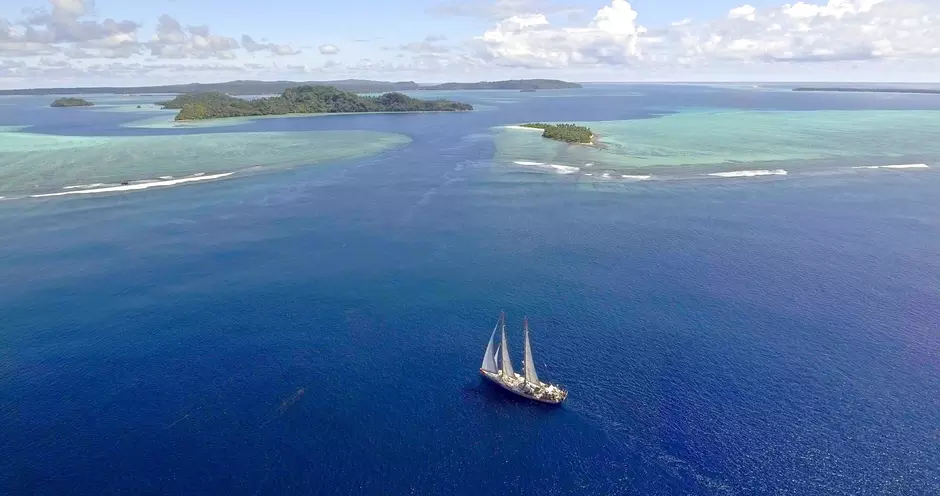
Environment & biodiversity
- Location:
Asia-Pacific - Sponsor:
Mathilde Nithart - Grant:
€300,000 over two years at the Board of Directors on 17/06/2024
Project Leader
The scientific schooner Tara is embarking on its 14th expedition: Tara Coral. Over two years (2026-2028), the crew will study the factors that make coral reefs resistant to global warming in Southeast Asia.
A witness to rising temperatures
Coral bleaching (the separation of symbiotic species that enable coral development), which has already been widely observed and documented, indicates the disastrous consequences of rising temperatures for these ecosystems.
Current warming trajectories pointing to global warming exceeding 1.5-2°C would thus lead to significant coral mortality and the disappearance of certain reefs. In addition to the ecological disaster, the disappearance of 70-90% of current coral reefs will lead to a loss of economic resources and increased poverty levels on tropical coasts around the world.
Resilience to be studied
Despite these findings and predictions, the latest report from the Global Coral Reef Monitoring Network (GCRMN) highlighted that many reefs around the world are still resilient and that if the pressures on these critical ecosystems are reduced, they have the capacity to recover, potentially within a decade, and return to healthy and thriving states.
The Southeast Asian Triangle region is home to approximately 35% of the world's coral reefs. The richness and diversity of this region, as well as the resilience of these reefs, highlight the need to study it and examine the processes that make this region more resilient than any other.
The schooner expedition will therefore seek to understand the factors explaining the resistance of coral reefs to global warming, focusing on the only known location in the coral world where such resistance has been observed. It will consist of in-situ sampling (schooner route) and a work plan involving more than a dozen scientific partners (9 French, 5 international).


